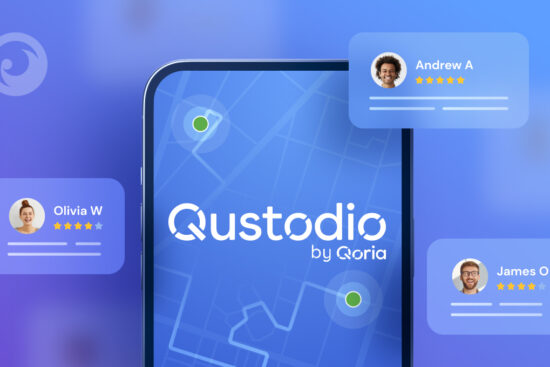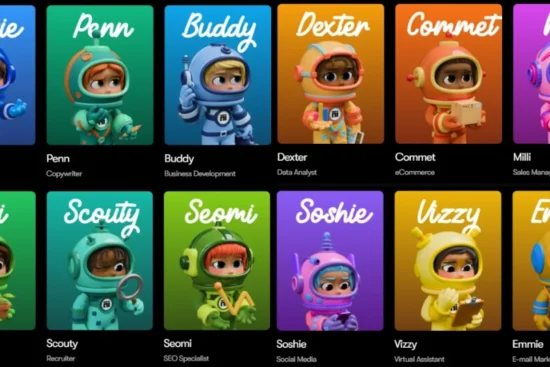
In today’s dynamic business landscape, the convergence of Artificial Intelligence (AI) and virtual assistants is generating waves of transformation. Enterprises are capitalizing on the power of AI applications, particularly AI-powered virtual assistants, to revolutionize productivity and efficiency within the workplace. As organizations strive to streamline operations, optimize processes, and improve collaboration, these AI-driven solutions have emerged as invaluable tools. In this comprehensive exploration, we delve into the manifold applications of AI and its role in reshaping workplaces, ushering in a new era of enhanced performance.
Unveiling the Scope of AI Applications
Artificial Intelligence has transcended its sci-fi roots to become an integral facet of contemporary life. Its applications extend across diverse sectors, from healthcare to finance, and manufacturing to entertainment. In the workplace, AI’s potential is equally profound. Whether it’s automating repetitive tasks, offering data-driven insights, or facilitating seamless communication, AI applications are versatile and impactful.
AI-Powered Virtual Assistants: A Paradigm Shift
At the forefront of AI’s impact on the workplace are AI-powered virtual assistants. These advanced digital entities combine Natural Language Processing (NLP), Machine Learning (ML), and data analytics to perform tasks previously reliant on human intervention. From scheduling meetings and managing emails to conducting research and analyzing data, virtual assistants can handle an array of responsibilities, thereby liberating human resources to focus on high-value endeavors.
Elevating Efficiency through Task Automation
One of the prime virtues of AI-powered virtual assistants is their capacity to automate routine tasks. Mundane chores that consume valuable time and cognitive resources can now be seamlessly managed by these digital allies. By doing so, employees can devote their energy to tasks requiring creativity, critical thinking, and strategic decision-making.
Enhancing Communication and Collaboration
Effective communication and collaboration are pivotal to workplace success. AI-powered virtual assistants facilitate streamlined communication by intuitively managing emails, messages, and notifications. Moreover, they assist in scheduling meetings, ensuring optimal coordination among team members, regardless of their physical location. This enhanced connectivity fosters collaboration, leading to more robust outcomes.
Optimizing Decision-Making with Data Insights
Data-driven decision-making is the hallmark of successful enterprises. AI-powered virtual assistants contribute by extracting actionable insights from voluminous data sets. They analyze trends, identify patterns, and offer predictive analyses, empowering leaders to make informed choices that propel their organizations forward.
Personalized Assistance for Increased Productivity

AI-powered virtual assistants excel in tailoring their support to individual users. Through continuous interaction and learning, these assistants understand user preferences, behaviors, and work patterns. Consequently, they deliver personalized assistance, whether it’s curating relevant information or suggesting optimal workflows.
Addressing Concerns: Ethics and Privacy
While AI-powered virtual assistants hold immense promise, ethical considerations and data privacy remain paramount. Organizations must ensure that data security protocols are stringent, and the technology adheres to ethical guidelines. By doing so, the integration of AI into workplaces remains productive and respectful of individual rights.
Integration Challenges and Future Prospects
The integration of AI-powered virtual assistants presents both opportunities and challenges. Technical complexities, user adoption, and customization hurdles necessitate careful implementation. However, as AI technology evolves, these challenges are likely to be surmountable, promising even greater efficiencies and capabilities in the future.
Concluding Thoughts
In the evolving landscape of the modern workplace, AI-powered virtual assistants are playing a pivotal role in enhancing productivity, streamlining operations, and fostering innovation. With their ability to automate tasks, facilitate communication, and offer data-driven insights, these AI-driven entities are reshaping how work is accomplished. As technology continues to advance, the symbiotic relationship between humans and AI is poised to yield remarkable achievements in workplace productivity and efficiency.
Commonly Asked Questions
Q1: How do AI-powered virtual assistants impact employee job roles?
AI-powered virtual assistants redefine job roles by automating routine tasks, allowing employees to focus on creative and strategic endeavors.
Q2: Are AI-powered virtual assistants customizable to individual work preferences?
Absolutely. These virtual assistants learn from user interactions and offer personalized assistance tailored to individual preferences.
Q3: What safeguards are in place to protect data privacy in AI applications?
Organizations implementing AI-powered solutions must adhere to stringent data security protocols and ethical guidelines to ensure data privacy.
Q4: Can AI-powered virtual assistants facilitate cross-team collaboration?
Yes, virtual assistants excel in scheduling meetings, coordinating among team members, and enhancing overall collaboration, regardless of geographical locations.
Q5: What does the future hold for AI-powered workplace solutions?
The future looks promising. As AI technology evolves, challenges will be addressed, leading to even more efficient and capable AI-powered workplace solutions.












